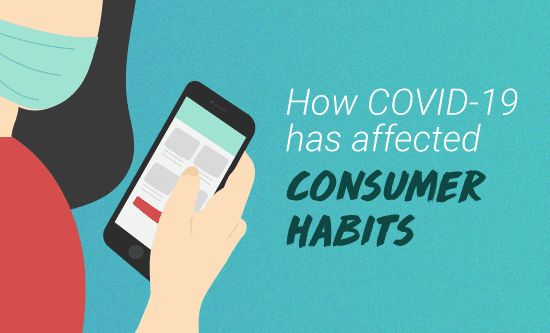With the ongoing COVID-19 crisis peaking around the world, we see many of our clients’ businesses suffering from it. As more nations are going under lockdowns, non-essential businesses – retail outlets, shopping malls, movie theatres are being ordered to close. Businesses are also experiencing low customer traffic numbers due to the public having the fear of leaving their homes.
Understanding the Impact:
Most nations are experiencing the weakest demand for consumer goods. Consumer habits are changing, which has worsened the situation and affected the way they behave. The crisis has left a negative impact for both in-store and online businesses, and to make matters worse, a report by Bloomberg showed that about half of retailers have already seen their online traffic drop, with the exception of food and groceries. A research conducted by CommerceNext backs this up, showing that 64.5% of retailers have not seen a shift in sales from stores to online.
Online Shopping is Evolving:
The landscape could potentially change in the coming weeks as customers become more accustomed to being at home and there would likely be a need to purchase non-essential items online. Publicis Sapient’s Guy Elliott, who is the senior vice president of retail & consumer products EMEA & APAC, believes that there will be a rise in demand for non-essential retail products over the coming weeks. “Online shopping for anything that is essential to being quarantined will grow – it’s a huge range from exercise and hobby equipment, to gardening and home improvement” (Essential Retail, 2020).
A survey was conducted on 2000 consumers to find out how COVID-19 is changing consumers & online shopping trends.
- Nearly half (43%) of them plan to do more of their shopping online.
- Almost a third (31%) are shifting to buying online more than in physical stores.
- More than half (56%) are looking to spend less.
- The survey found that 35% of consumers are starting to pay more attention to marketing messages such as emails, SMS, and social ads.
- Of the product categories that customers are most interested in shopping for, food is at the highest with 78.8%
Rethinking the Strategy and Amplifying our Clients brand
There is a growing trend in marketers directing more of their spend towards customer retention rather than acquisition. There is a need to align business purpose with customers’ emotional needs as this would powerfully affect consumers’ spending, their opinions of the brand and their retention. Priorities are changing and gaining existing customer’s trust is more important now than ever. We need to think of ideas to improve customer communications (email marketing or social media) and this should be a priority for all our clients.
With everything that has been changing so quickly, brands should put their focus on 3 key areas to improve on customer retention:
- Build stronger customer relationships
Focus on your existing customers by tracking & analyzing their purchasing behaviour. - Improve customer satisfaction & loyalty
Setting up more diagnostics and feedback tools to understand their behaviour. E.g. how are they behaving now? - Standing out from the competition
Using the data available, increase your engagement by personalising your communications with each individual customer. This would allow a brand to deliver greater value.
As we continue to navigate our way through this crisis, it is a good time for us to continue assessing the current situation our clients are facing and help them to re-evaluate and rethink how we can help them to engage and interact with their customers. There is no doubt that the crisis has shaken up businesses around the world, however, let’s better prepare ourselves and stay ahead of the game.
By Jerome Chan, Account Manager of Digital Alchemy.
Jerome is based in our Digital Alchemy Singapore office looking after our Tech and Fintech clients. You can find more posts from Jerome on the DA Blog.

